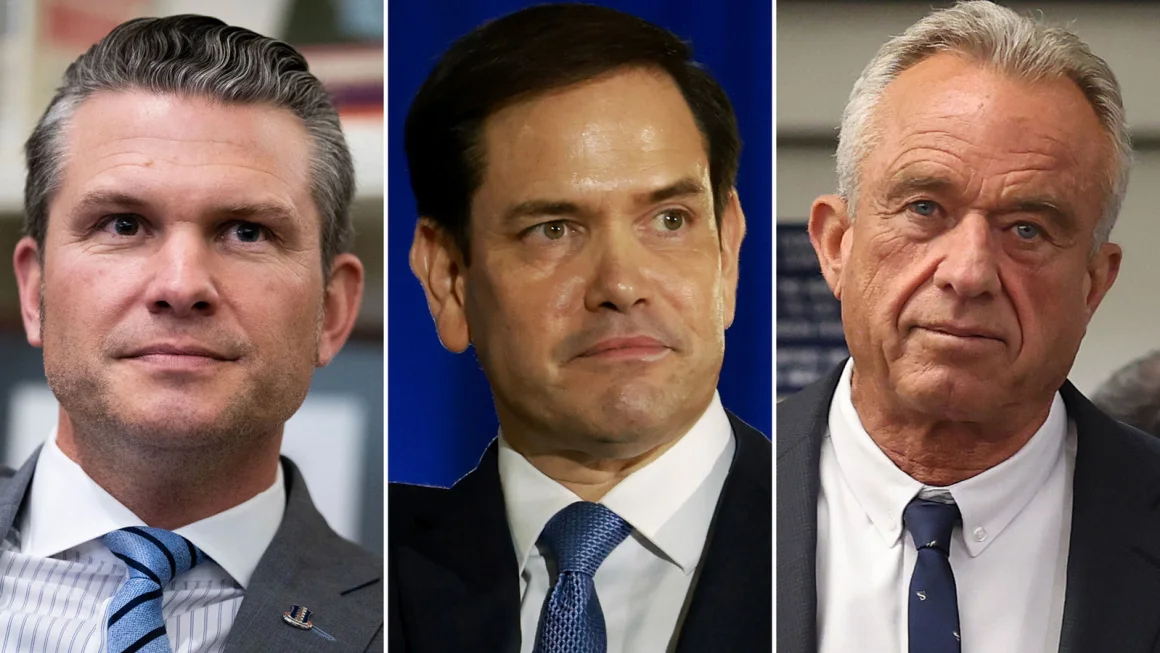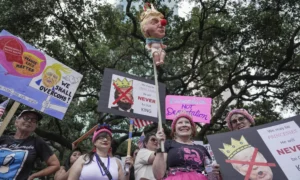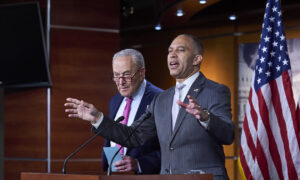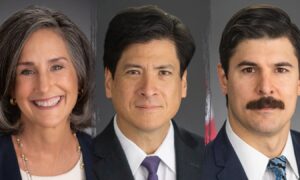This week, the Senate will begin its confirmation hearings for Donald Trump’s new Cabinet, which, despite their varied political affiliations and inconsistent qualifications, is sure to demonstrate one thing: an unwavering devotion to the president-elect.
Prior to their high-stakes Capitol Hill appearances, the candidates chosen by Trump have spent weeks preparing, engaging in intense study sessions, controversial mock hearings, and receiving tough coaching from Republican senators. Candidates have been coerced by Trump’s aides and friends into facing their weaknesses, honing their presentations, and practicing avoiding Democratic traps in secret for lengthy hours.
The rigorous practices are reminiscent of Trump’s first term, when his staff trained their candidates for the nomination hearing protests, yelling matches amongst stand-in committee members, personal insults, and other eruptions meant to disrupt their focus.
But what makes this round of confirmations special is the increased pressure on Trump’s choices to demonstrate public adherence to the president-elect’s agenda, something that wasn’t necessarily guaranteed during his first term, in addition to their individual competence.
As Trump’s first press secretary, Sean Spicer helped prepare his candidates for office. “This time, people view the nominees as an extension of Donald Trump and his agenda,” he said. “They’re not defending their personal opinions; they’re defending Trump’s policies.”
The days following Trump’s 2016 first election were “a very different place,” according to Spicer.
Indeed, during the confirmation hearings for Trump’s cabinet eight years ago, some of his appointees laboriously attempted to separate their opinions from the campaign statements of the guy they were about to serve under.
Even though Trump referred to climate change as a “Chinese hoax” when running for president in 2016, some of these individuals have informed senators that they believe it is a real issue caused by humans. Some people still didn’t seem convinced that Trump’s proposal to construct a wall along the US-Mexico border would deter illegal immigration.
As nominees, the first administration’s top diplomats—Nikki Haley, the UN ambassador, and Secretary of State Rex Tillerson—voiced concern over Trump’s callous attitude toward Russia’s provocations and vowed to maintain the alliances that Trump frequently sought to weaken. James Mattis, Trump’s pick to head the Pentagon, has pledged to keep the Iran nuclear deal in place, even though Trump has consistently called it a horrible deal.
There was a noticeable gulf between the two parties, and it set the tone for Trump’s tense relationships with members of his Cabinet, some of whom he had only a cursory acquaintance with before promoting to high positions. This dynamic frequently caused him to mistrust those in his immediate vicinity and, on occasion, pushed him into a tailspin due to his perception of their supposed lack of loyalty. Some of Trump’s early personnel choices, he has later said, were “the biggest mistake I made.”
You don’t give any thought to the fact that I choose some fantastic individuals, you know. During his campaign for 2024, he said to podcaster and comedian Joe Rogan, “I picked some people that I shouldn’t have picked.” He went on to call some of his picks “bad people or disloyal people.”
An period of fresh cabinet appointments under Trump
Senator Marco Rubio of Florida, Trump’s most recent choice for secretary of state, exemplifies the how the Republican Party has changed and how it will respond to his agenda.
Eight years ago, after losing the Republican primary to Trump, Marco Rubio utilized his position on the Senate Foreign Relations Committee to encourage Rex Tillerson to adopt Trump’s isolationist stance rather than Rubio’s own aggressive beliefs. Rubio pushed Tillerson to accuse Russian President Vladimir Putin of being a war criminal during one heated confrontation. While Tillerson was hesitant to do so, Rubio was first hesitant to endorse Trump’s nominee for secretary of state but ultimately changed his mind.
Rubio has come out as quite supportive of Trump’s ideology as he awaits approval by the Senate to be Trump’s top diplomat.
The position of secretary of state is to carry out the foreign policy decisions made by the elected president of the US, as Rubio stated soon after being nominated for the position by Trump. “If my present US Senate colleagues confirm me, I would love to have the chance to do it.”
Republicans now think Trump will confirm his Cabinet appointees at a far quicker rate than in 2017, when concerns like FBI background checks and ethical agreements took longer than expected and the process took longer than expected to finish, delaying Trump’s inauguration.
Potential holdups may yet occur. Numerous individuals appointed to Trump’s cabinet, among them some of the nation’s richest individuals, have remained tight-lipped about their personal wealth and how they intend to separate their political positions from their personal fortunes. Along the road, further obstacles may emerge.
On Tuesday, the Senate Veterans’ Affairs Committee will hear testimony from several nominees, including former Georgia Representative Douglas Collins, who has been nominated to the position of secretary of veterans affairs, and Pete Hegseth, who was nominated by Trump to the position of secretary of defense.
Karoline Leavitt, who will be serving as Trump’s press secretary, told AWN that the American people will be pleased with the selections that the president would make in the coming weeks.
Some of Trump’s most eccentric and contentious cabinet picks, such as Hegseth, Robert F. Kennedy Jr. (a previous presidential contender), and Tulsi Gabbard (a former Hawaii representative), face obstacles in their roles. As it turned out, some Republicans were not ready to ignore disturbing allegations of sexual and personal misbehavior, which former Florida Representative Matt Gaetz rejected. As a result, Gaetz was forced to withdraw from the race for attorney general, which was one of Trump’s options.
Right now, Trump is sticking by his remaining nominees, and a number of Republican senators have been actively assisting them in navigating the process, particularly with disputed names who might not have much experience in front of a large audience during a confirmation hearing.
Republican Markwayne Mullin of Oklahoma has testified in mock hearings, which he claims “don’t pull any punches” and run over two hours.
A chair and a ranking member are on our team. There are name tags floating about. “We have the mics,” Mullin stated simply.
The sessions have involved working with Hegseth, who is expected to face increasing pressure due to his history, which includes accusations of sexual assault, workplace drinking, and mismanagement of a veterans organization. The former soldier disavowed any misconduct.
“He isn’t the sole one. All of the candidates are participating in this. Mullin explained it this way so they wouldn’t be caught off guard.
If individuals like Hegseth fail to make a strong impression during their confirmation hearings, the president-elect’s support for them may suddenly shift, according to many Trump supporters and veterans of the confirmation battles.
“The bigger challenge for any of the (nominees) is just making sure the president still has confidence in them when they’ve completed their discussions,” said South Dakota Sen. Mike Rounds.
Ralph Reed, who has previously advised Trump through difficult nomination battles, founded the Faith and Freedom Coalition. Reed stated that he thinks the incoming president and his Senate supporters are supporting Hegseth in part due to what they learned from previous confirmation drama. Supreme Court Justice Brett Kavanaugh, who vigorously disputed sexual assault allegations leveled against him shortly after his appointment, was subject to confirmation proceedings, which have hardened many Republicans.
Businessman Andrew Puzder, who had been nominated by Trump to be secretary of labor, withdrew from consideration in 2017 when a story appeared resurfacing previously dropped charges of domestic violence made by Puzder’s ex-wife on Oprah. (The abuse had been denied by Puzder.)
The claims against Hegseth were not denied by Reed, although he did imply that politics may be involved. “These accusations should be critically considered, but simultaneously, I am approaching it with a more stringent level of proof due to the fact that this is the Democratic strategy,” he stated.









